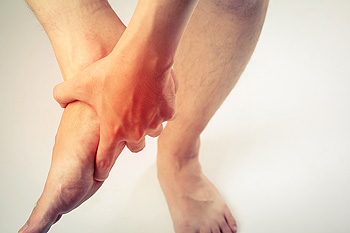
Plantar fasciitis is a common cause of heel pain, with a preponderance of cases in those aged 45 to 65 years old. This condition involves chronic pain on the bottom of the heel where the plantar fascia, the band of tissue that runs along the bottom of the foot from the heel to toes, attaches to the heel. The pain is more severe with the first few steps after sleep or sitting for a prolonged time. It gets worse when standing or walking for long periods and relief is most often found by resting. Risk factors include obesity, a sedentary lifestyle, arch issues, wearing ill-fitted shoes, and standing on the feet for long periods. Understanding the enduring effects of routine footwear on this condition can be helpful, as slight shoe changes might alleviate discomfort and disability. Footwear that works better to prevent plantar fasciitis involves some heel height but not much, hard, well-cushioned soles, and insoles with built-in arch support. If you would like to understand more about how appropriate footwear can calm down plantar fasciitis, it is suggested that you make an appointment with a podiatrist to discuss this issue further.
Many people suffer from bouts of heel pain. For more information, contact one of our podiatrists of Foot & Ankle Associates of Maine. Our doctors can provide the care you need to keep you pain-free and on your feet.
Causes of Heel Pain
Heel pain is often associated with plantar fasciitis. The plantar fascia is a band of tissues that extends along the bottom of the foot. A rip or tear in this ligament can cause inflammation of the tissue.
Achilles tendonitis is another cause of heel pain. Inflammation of the Achilles tendon will cause pain from fractures and muscle tearing. Lack of flexibility is also another symptom.
Heel spurs are another cause of pain. When the tissues of the plantar fascia undergo a great deal of stress, it can lead to ligament separation from the heel bone, causing heel spurs.
Why Might Heel Pain Occur?
- Wearing ill-fitting shoes
- Wearing non-supportive shoes
- Weight change
- Excessive running
Treatments
Heel pain should be treated as soon as possible for immediate results. Keeping your feet in a stress-free environment will help. If you suffer from Achilles tendonitis or plantar fasciitis, applying ice will reduce the swelling. Stretching before an exercise like running will help the muscles. Using all these tips will help make heel pain a condition of the past.
If you have any questions please contact our office located in Brunswick, ME . We offer the newest diagnostic and treatment technologies for all your foot and ankle needs.
